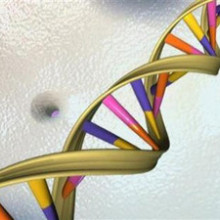Earth seems like such a good place for life to thrive, so is it a good place for life to get started? Has life started on Earth more than once? If so, where is it?
In this episode

00:00 - Has life only started once on Earth?
Has life only started once on Earth?
We put this to Dr. Nick Lane, Lecturer in Genetics Evolution and Environment at the University College London. And started by asking him to define what life on Earth as we know it actually is... Nick - All life as we know it on Earth is composed of cells with an enclosing membrane, DNA as hereditary material, encoding proteins and so on. All cells share a lot of their basic biochemistry right down to the same genetic code, the same ways of making proteins, even the same ways of generating energy.
Hannah - So, given that, has life as we know it or indeed alternative forms of life arisen more than once on Earth?
Nick - We don't know for sure that life only started once on Earth. What we know is that all living organisms we've ever looked at are plainly related and so, almost certainly derived from a single common ancestor. If life arose repeatedly then all of the separate origins must've disappeared without trace. Perhaps out-competed to extinction very early on by the more successful cells. The fossil record of bacterial cells goes back about 3,500 million years, that's 3.5 billion years. And so far as we can tell, these cells were very similar to their modern equivalents.
Hannah - So, different forms of life may have started, but it seems that just our form of life survived over the last 3.5 billion years. And where could our type of life have started?
Nick - Deep ocean hydrothermal vents are the systems most likely to have given rise to life. These far from equilibrium systems do at least favour the production of organic molecules, the biomass that makes up cells, but the level of self-organisation and dynamism required to get from cell matter to living cells is so great that we're in no position to specify the probability of life arising even in the most favourable environment.
Hannah - So, if we're told that conditions on Earth are so suitable for forming life, then why aren't new types of life arising all the time on present-day Earth?
Nick - There are two big differences today which mean that life is almost certainly not continuing to arise even in these favourable settings. One is the chemistry of the oceans. Four billion years ago, there was no oxygen and much higher CO2 levels which together are much more conducive to life and then secondly, today's vent systems are already packed with living cells which are far more effective at converting raw materials such as hydrogen and CO2 into biomass than any primitive prebiotic system could be. So, however likely life might have been at the beginning, it's extremely unlikely that life could originate again on Earth today.










Comments
Add a comment